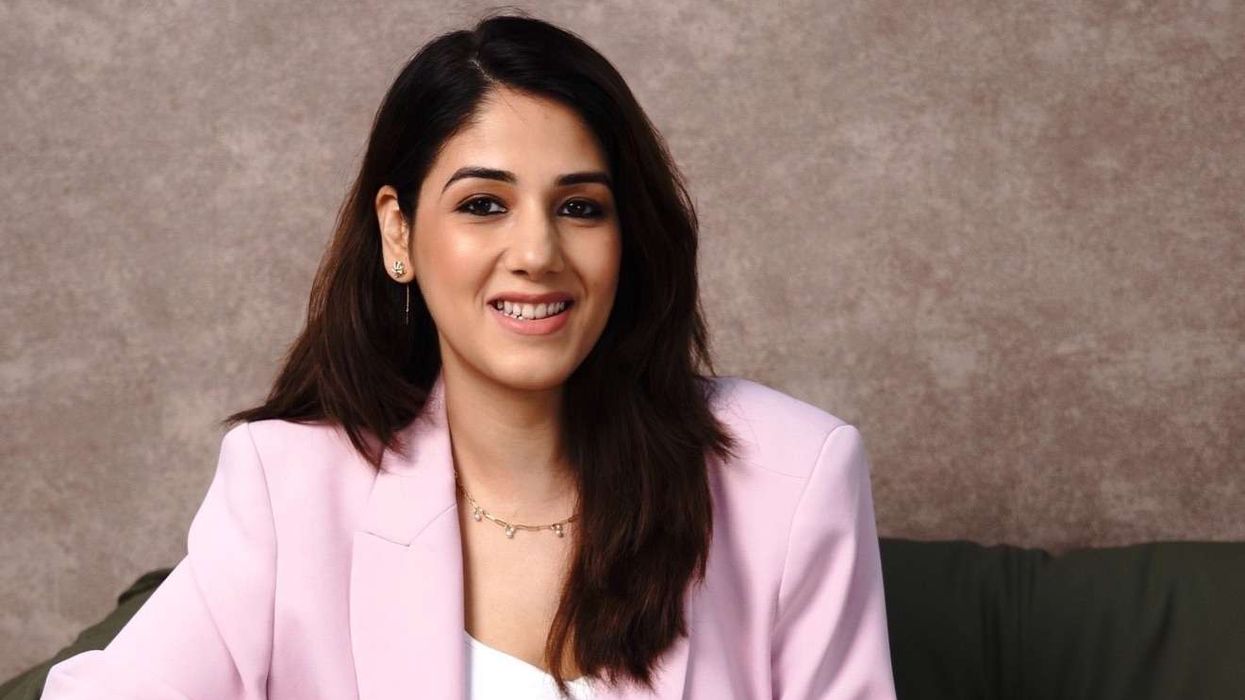From emergency funds to diversification, the @PrettyMuchFinance founder shares the essential financial habits everyone should follow to secure their future.
Monica Malik, the LLB-qualified, AMFI-registered and NISM-certified creator behind @PrettyMuchFinance has become one of India’s most trusted voices in personal finance. Known for simplifying complex money matters for her two-million-strong community, the Forbes India Top 100 Digital Star has helped countless people understand everything from taxes and home loans to investments and scam prevention.
In an exclusive feature for Eastern Eye, Monica breaks down her top 10 finance tips everyone should follow, offering practical, easy-to-apply guidance rooted in discipline, awareness, and long-term financial wellbeing. Whether it’s paying yourself first, building an emergency fund, avoiding lifestyle debt or planning for retirement, her advice serves as a roadmap for anyone looking to take control of their money and protect their future.
Pay yourself first: One of the simplest and most effective money habits is to pay yourself first. Before you spend on anything else, save at least 20 per cent of your income. Treat this like a non-negotiable monthly bill. When you save first and spend later, you automatically build discipline and make sure your future self is taken care of. It removes the stress of “I’ll save whatever is left,” because let’s be honest, nothing is ever left.
Create an emergency fund: Life is unpredictable, and that’s exactly why an emergency fund is essential. Aim to keep at least six months’ worth of living expenses in a liquid account. This is your personal safety net for situations like job loss, medical emergencies, or sudden expenses. The goal isn’t just financial security, it’s peace of mind. When you have an emergency fund, you make decisions from a place of calm, not panic.
Don’t fall for easy loans: Loans, EMIs, and “buy now, pay later” offers can feel tempting, especially when they seem small and manageable. But stacking multiple EMIs can slowly trap you in long-term debt. Borrow only when it genuinely adds value to your life, for example, education, a home, or a well-planned business. Avoid loans for lifestyle upgrades or impulse purchases. Debt is easy to enter, but expensive to escape.

Diversify your investments: Putting all your money into one type of investment increases your risk. Diversification protects you from market ups and downs. A healthy balance across equity (for growth), debt (for stability), and gold (for safety) ensures your portfolio stays strong in different economic conditions. Diversifying isn’t complicated, its simply smart risk management, and it’s a habit every investor should build early.
Insure before you invest: Insurance isn’t a formality, it’s protection. Before you even think of investing aggressively, make sure you have adequate health insurance and term insurance. These two are non-negotiable because one medical emergency or financial setback can wipe out years of savings. Insurance creates a cushion that protects your money, family, and long-term goals.
Track your expenses: Most people don’t have a money problem - they have a spending awareness problem. Tracking your expenses helps you understand exactly where your money is going. When you budget, you stay in control instead of wondering why your balance is low by the middle of the month. This simple habit helps you identify wasteful spending, prioritise what matters, and stay consistent with your goals.
Invest according to your goals: Mindless investing rarely works. Instead, assign a purpose to every rupee. Whether you're saving for a house, travel, higher education, or financial freedom, your goals determine your investment strategy, timeline, and risk level. When you invest with goals in mind, the process becomes meaningful and you stay motivated, even during market ups and downs.
Build multiple income streams: Relying on a single salary is risky in today’s world. Creating additional income streams gives you stability and freedom. This could be freelancing, consulting, a side hustle, renting assets, or any form of passive income. You don’t need to start big - the goal is consistency. Even a small second income can grow into something significant over time.
Don’t ignore retirement planning: Retirement may feel distant, but planning for it early is one of the greatest financial gifts you can give yourself. Starting in your 20s or 30s allows compounding to work its magic. The earlier you begin, the smaller the amount you need to invest, and the easier it becomes to retire comfortably. Your future lifestyle depends on the choices you make today.
Keep learning about money: Personal finance is not a one-time lesson, it’s a lifelong journey. The world of money keeps
evolving, and staying informed helps you make smarter decisions. The more you learn, the more confident and secure you become. Think of financial knowledge like compounding: small lessons learned consistently can completely transform your life over time.
Instagram: @PrettyMuchFinance




